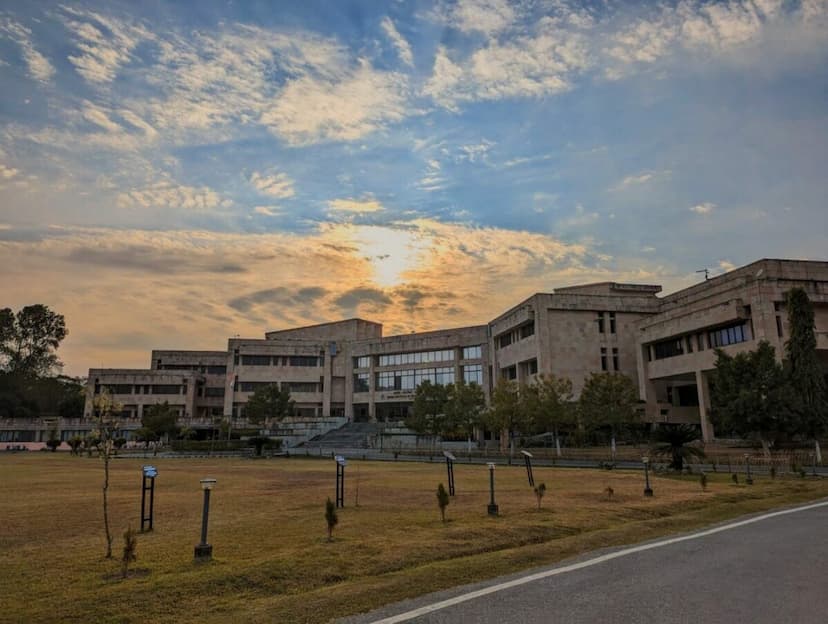Data Science and Machine Learning: Key Differences, Top Courses, and Best Books

The blog article educates the readers on the differences between Data Science and Machine learning. Data fuels innovation in the digital age. Machine learning has revolutionised industries by creating and producing new materials with improved qualities. Data-driven insights can speed up materials research and development when these two fields are combined. In this post, we will discuss Data Science with Machine learning key differences in excellent courses, and suggest some best-read books and top courses. Let’s explore!
Also, read 8 Tips to Excel in the New-Age Job Market


Data Science and Machine Learning: Key Differences
Data science is the study of data from several perspectives to draw conclusions and inform action. Information is collected, cleaned, analysed exploratively, and predictive models are built using a variety of software and hardware tools.
Data scientists are responsible for gathering data from several sources and vetting it for quality and consistency.
The goal of exploratory data analysis (EDA) is to unearth previously undiscovered associations and relationships within a dataset.

The purpose of statistical analysis is to examine big data sets in order to make conclusions and take appropriate action. Statistical methods such as hypothesis testing, regression, and clustering can be applied.
In order to convey complicated information in an understandable and interesting way, data visualisation is a crucial tool. Report clarity and readability are both enhanced by data visualisation.
To anticipate or classify incoming data, data scientists employ predictive modelling, which involves spotting patterns in previously collected information. As these models are trained using past data, they progressively improve to perform better.

Machine learning, a branch of AI, is concerned with teaching computers to draw inferences and conclusions from data without being explicitly programmed to do so. In order to make accurate predictions or categorizations, machine learning algorithms can automatically learn these patterns and relationships.
Automatically Increasing Performance by Studying Examples and Fine-Tuning Parameters Machine learning algorithms can automatically increase their performance by studying examples. As they collect more information, they iteratively improve their forecasts.
Using their ability to recognise patterns and relationships in data, machine learning algorithms can then use this information to make predictions or classifications.
Machine learning models are taught to recognise patterns and generalise from training data through a process called “training” and “inference.” These models, once trained, can predict or take action based on novel, previously unseen data.

Healthcare, the financial sector, and the retail sector are just a few of the many industries that have found uses for data science and machine learning. In healthcare, data science is used to create algorithms that make medical diagnoses more precise. Watson Health from IBM, for instance, aids in the detection of cancer and Alzheimer’s disease. Using machine learning, doctors can better determine which patients will respond best to which treatments.

In the financial sector, data science is used to monitor fraudulent credit card activity by analysing transaction patterns. The risk of insuring an individual or company, for example, can be calculated using machine learning.
In the retail sector, data science is used to tailor product recommendations to individual customers based on their previous purchases. By analysing historical demand and supply data, machine learning can calculate the best possible price.
These illustrations demonstrate the widespread application of data science and machine learning, which have facilitated developments in many fields, including healthcare diagnostics, fraud detection, personalised recommendations, and pricing optimisation. We can expect even more creative uses and future contributions to these fields as they develop further.
Also, read Top Career Options after 12th Class
To understand better let’s look at the key differences in a tabular form.
| Feature | Data Science | Machine Learning |
| Definition | The field of extracting insights from data | The field of teaching computers to learn without being explicitly programmed |
| Goals | To understand and analyze data, extract insights, and make data-driven decisions | To build models that can predict future outcomes or classify data |
| Methods | Uses statistics, machine learning, and data visualization | Uses statistical learning, supervised learning, unsupervised learning, and reinforcement learning |
| Applications | Healthcare, finance, marketing, retail, manufacturing, etc. | Healthcare, finance, fraud detection, natural language processing, computer vision, etc. |
| Tools | Python, R, SQL, Hadoop, Hive, Spark, Tableau, etc. | Python, R, TensorFlow, PyTorch, scikit-learn, etc. |
| Skills | Programming, statistics, machine learning, data visualization, communication | Programming, statistics, machine learning, problem-solving, creativity |
| Career paths | Data scientist, data analyst, data engineer, machine learning engineer, business intelligence analyst, etc. | Machine learning engineer, data scientist, research scientist, software engineer, etc. |
Data science and machine learning are comparable areas, as shown. The two areas differ in aims, techniques, and applications.Data science includes machine learning. Statistics, machine learning, and data visualisation help data scientists get insights. Data science’s machine learning subfield builds models to predict or categorise data.
Machine learning has many fascinating uses. Healthcare, banking, fraud detection, natural language processing, and computer vision employ machine learning models. There are numerous wonderful resources for data science and machine learning students. These fields have many employment openings, therefore your talents will be in demand.

Data Science and Machine Learning: Top Courses
-
Data Science Specialization by Johns Hopkins University on Coursera
-
Machine Learning Specialization by Andrew Ng on Coursera
-
Python for Data Science and Machine Learning Bootcamp by Udemy
-
Deep Learning Specialization by Andrew Ng on Coursera
-
Introduction to Machine Learning for Coders by fast.ai
-
Statistics and Machine Learning for Data Science by Imperial College London on edX
-
Machine Learning with TensorFlow by Google on Udacity
-
Data Science MicroMasters by UC San Diego on edX
These courses are all well-respected and offer a comprehensive introduction to data science and machine learning. They are also relatively affordable, making them a great option for those who are looking to learn about these topics without breaking the bank.
Data Science and Machine Learning: Best Books to refer
In addition to these online courses, there are also a number of great books and tutorials available on data science and machine learning. Some of the most popular books include:
-
Introduction to Statistical Learning by Gareth James, Daniela Witten, Trevor Hastie, Robert Tibshirani
-
Machine Learning by Tom Mitchell
-
Deep Learning by Ian Goodfellow, Yoshua Bengio, Aaron Courville
-
Introduction to Machine Learning with Python by Ameet Talwalkar
-
Data Science for Business by Galit Shmueli
-
Principles of Data Science by Abhinav Grover and Prashant Yadav
-
Machine Learning for Absolute Beginners by Krishnan Ramanathan
-
Data Science with R by Sanket Choudhary
Conclusion
As we continue our examination of Data Science and Machine learning, we hope you have learned about their important distinctions, found some great courses to improve your abilities, and uncovered a treasure mine of suggested books to further your understanding. Data Science helps us gain insights from massive data sets for materials research decision-making. Machine learning is a narrower and more focused approach to dealing with specific problems in revolutionising industries and influencing our future. Bridging these domains opens us to a world of data-driven machine learning, synthesis, and characterisation. Whether you select Data Science, Machine learning, or the intriguing intersection of the two, remember that innovation and discovery are limitless. Let curiosity guide you!
Meet Tanu Bhatnagar, an educational expert with extensive experience in teaching, research and mentoring.With a decade in education and research, Tanu combines academic expertise with engaging storytelling. Her research background ensures every article is well-researched and insightful. Beyond textbooks, Tanu's expertise spans writing, exam preparation, economic trends, and global education, delving into the realms of spiritual awakening. This diverse perspective shines through in his writing, offering a fresh take on education. Join Tanu and CollegeChalo for an enriching learning adventure, where his passion ignites yours, and his words light your way.









